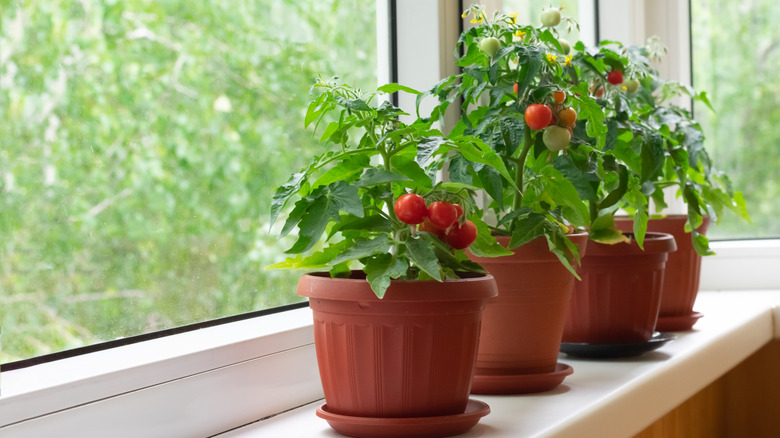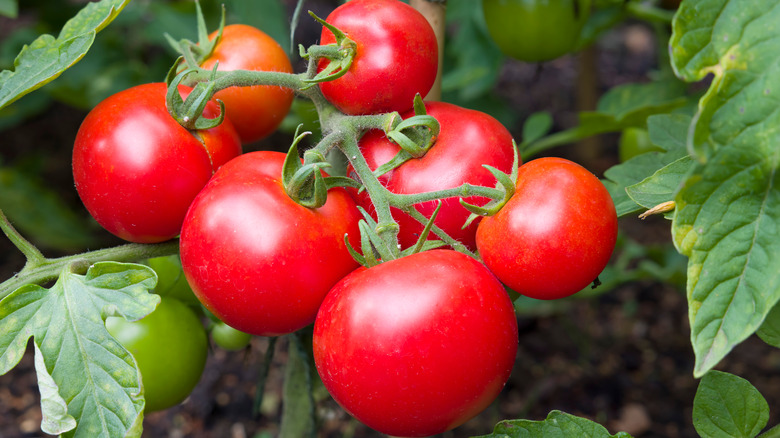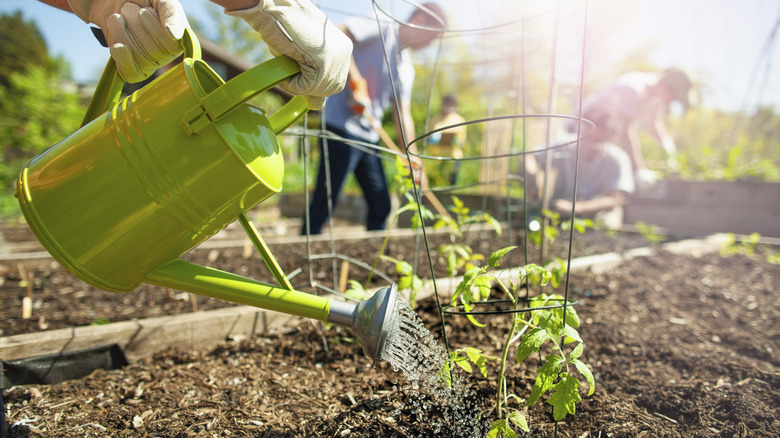Is Table Salt The Secret To Growing Better Garden Tomatoes?
Have you heard that putting table salt into your garden soil or adding it to the water you use for your tomato plants can help to give them better flavor? Interestingly, there are studies that show that doing this can actually change the flavor of the fruits. Some people find that tomatoes from plants treated with a small amount of saline solutions may have a slightly better taste, likely from the acidic and sugar compound flavors being more enhanced by the presence of the salt.
That may sound like a good thing for those who want a bright, tart tomato right out of the garden, but adding too much salt is going to harm your plants, and that means you are not likely to have the crop that you desire. Too much salt added to the soil or water can be so dangerous that it can cause your plants to wilt and die.
If you have tomato plants growing in your home or garden, then you may want to weigh the use of salt as an ingredient in the water or soil very carefully to find the proper balance. You can also work to enhance the soil quality by adding nutrients to help encourage plant growth and fruit production. Whatever you do though, don't just pour salt onto your plants — it's easy to make mistakes with tomato plants, but these tips can help you avoid them.
What salt does to tomato plants
When water containing a high level of sodium is added to tomato plants, that sodium leaches into the fruits produced by the plant, creating a more robust and intense flavor profile. Your grandparents may have told you that tomatoes today don't taste the same as when they were growing up, and that would be true. That's because, prior to the 1940s, sodium was added to soil used to grow many vegetables. That was done specifically because sodium nitrate was the most common way to provide these plants with the needed nitrogen. However, after that period, nitrogen was accessed in different ways, and soils, therefore, had less sodium in them.
Rutgers' Joseph Heckman, Ph.D. notes a study that shows evidence that adding sodium to the soil can change the sugar and acids within the plant's compounds altering the pigment of the fruit and creating a superior flavor as well. Though researchers are still trying to determine why this happens, it's clear that sodium can make tomatoes taste better.
Yet, the addition of too much sodium can also be harmful, causing damage to the leaves of the plant, drying out the roots, and creating complications to the overall production ability. Too much salt stresses the plant and causes heightened dehydration and root damage. The salt itself prevents the plants from pulling up the necessary nutrients and moisture from the soil it needs to grow and produce.
How to find a balance in using salt for tomatoes
To get the best possible flavor from your tomato plants, there are several things you can do. First, don't ignore the value that salt adds as an ingredient to your garden soil. Most types of tomato plants can handle slightly saline soil, which means that you can add a small amount of salt to your water. Just keep the concentration low, and don't use it all of the time.
Another factor to keep in mind is that some researchers believe that it's not the sodium itself that's causing the flavor improvement, but rather the stress that the sodium applies to the plant. Most gardeners don't want to stress their plants, but it's possible that the salt in these studies is actually causing a lack of nutrients and water to flow to the plant, altering the flavor profile. That means that, by reducing the amount of watering you do, you may be able to achieve a different flavor with your tomatoes as well. Ultimately, if you want the best-tasting tomatoes, make sure you learn as much as you can about the tomato variety, the nutrients the plant needs, the amount of sunlight ideal for ripening, and the best level of water concentration in the soil.


